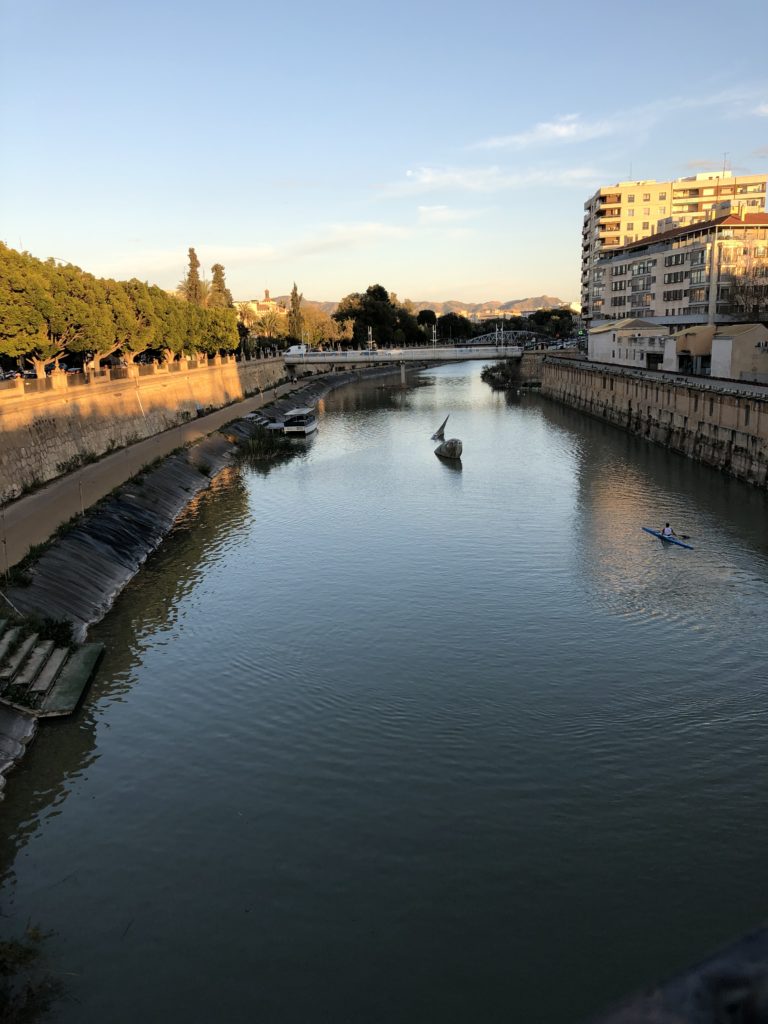
I would like to share my adventures as a Fulbright Scholar to Spain in Spring 2020. When I arrived in Murcia, I immediately fell in love with the city. It was warm and beautiful and there were palm trees and orange trees everywhere. I pinched myself to make sure that I wasn’t dreaming and I was really a Fulbright Scholar to Spain. As I explored the city, I found that it was easy to navigate, it has a tram system that goes directly from the city center to the Universidad de Murcia, and it has a rich culture and wonderful food. If you go there, you must visit the Casino Real (a beautiful 18th century ‘Gentleman’s Club), the Cathedral de Santa Maria, the Museo Salzillo, and watch flamenco dancers at the Teatro de Romeo.
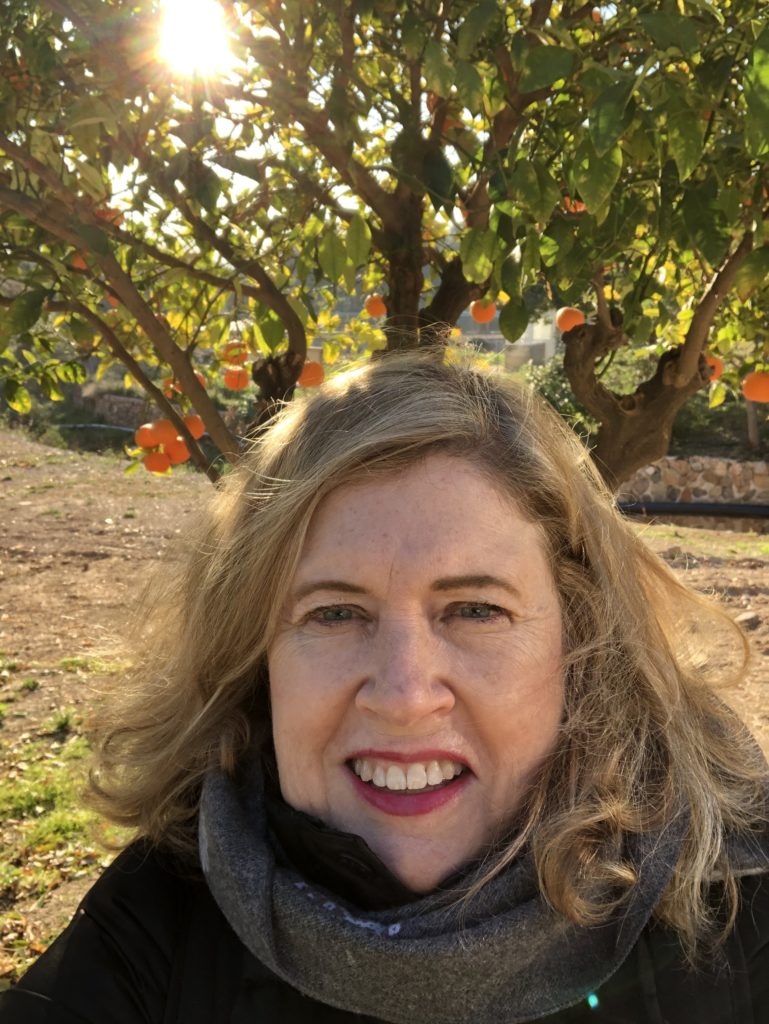
But let me start at the beginning…when I applied to the Fulbright Scholar Program, I applied to the biology program in Spain because of my interest in Spanish culture and science. When I saw that the Universidad de Murcia was interested in a Fulbright Scholar at their institution, I began researching the different scientists and their research programs. I reached out to Dr. Maria Angeles Esteban because her lab was working with antimicrobial peptides produced by fish and my lab works on finding new treatments against antibiotic-resistant bacteria. Dr. Esteban was very receptive to my interests and through the Fulbright Senior Scholar Program I was thrilled to join her lab for 3 months as she is an esteemed researcher in fish immunology and diseases in Spain and is known worldwide for her research
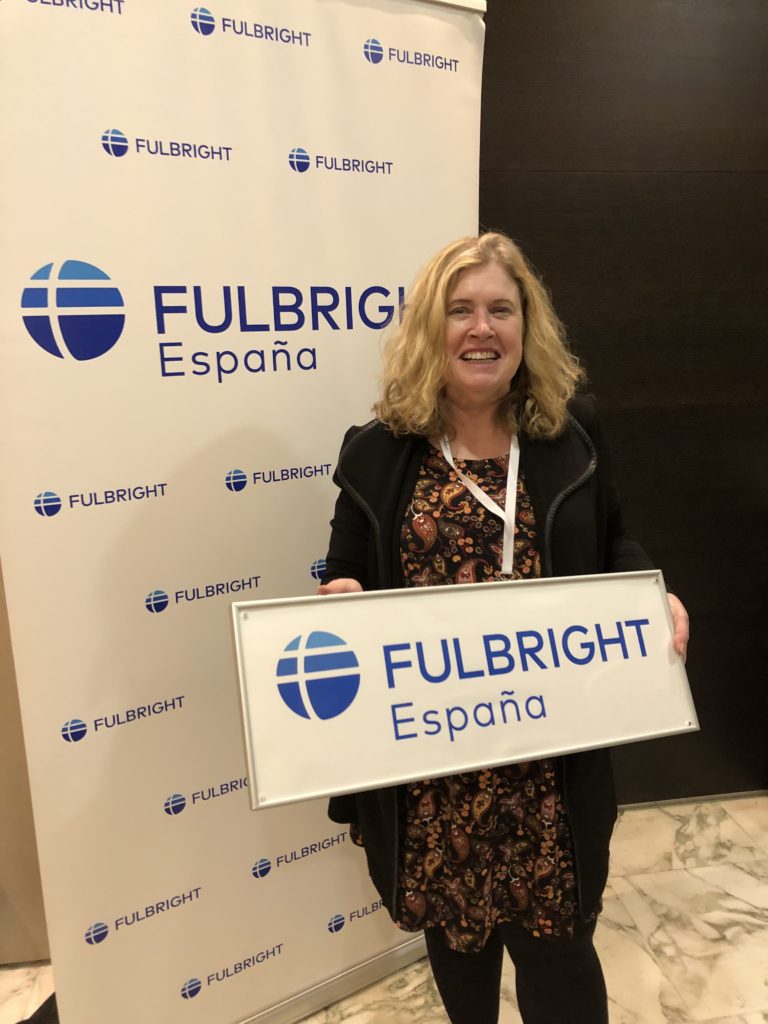
The Fulbright Program was an incredible opportunity and I feel extremely honored to have been a Senior Scholar in this program. Fulbright Espana was very helpful and welcoming and always available to answer questions. One of the most amazing events that I attended was the Fulbright Mid-Year Seminar that was held in Murcia City. Fulbright student and senior scholars met and presented their work (teaching and research) to each other. In addition, there were breakout sessions with the student scholars and senior scholars were invited to provide both a listening ear and mentorship. Their stories were fascinating and their Fulbright experience was obviously a very positive growth experience for them. The student scholars entertained us with music, poems, and skits. To wrap up the meeting, there was a scavenger hunt that took us all over Murcia City from the river to restaurants and small shops. I was part of a group of senior scholars (with Director Alberto Lopez San Miguel), and we had a blast! The senior scholars have remained in contact and several of us met in Valencia a few weekends later.
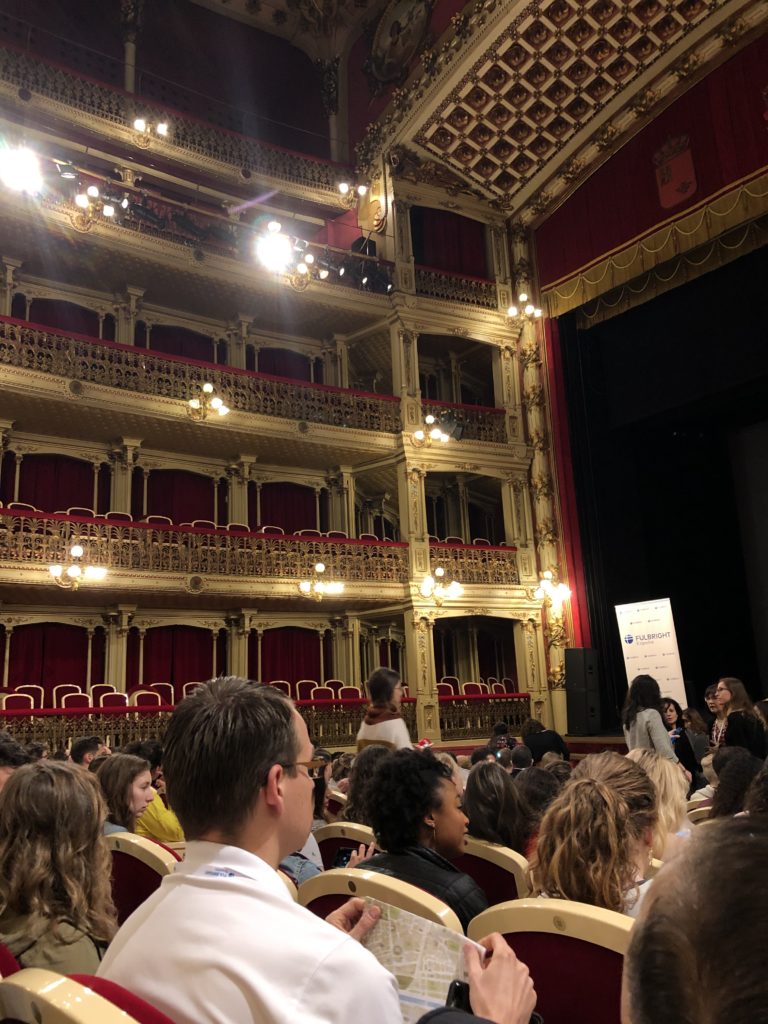
When I arrived at the Universidad de Murcia I was welcomed by Drs. Esteban and Roberto De Gea Canovas, who set me up with intensive Spanish lessons (super important!) and provided me with guidance on places to stay, banks, and the tram system. Dr. Esteban was a wonderful host and was eager to work on the project. I was amazed at how welcome I felt at the Universidad de Murcia – I felt I truly belonged there. Everyone was very friendly and helpful and shared their workspace and materials with me. One thing that I noticed immediately was that the lab members worked together closely as a team and everyone in the department had lunch together every day. And when someone graduated with their Master’s or Ph.D. degree there was a departmental celebration. This was striking to me and I enjoyed the camaraderie. Dr. Esteban’s lab members invited me on a weekend excursion to Orahuela for hiking and the Orahuela Medieval festival. It was fascinating to watch the different festival activities and re-enactment of the treaty between the Moors and Christians of early Spain. It was a magical day with kings, queens, jesters, and a person in costume as a giant ‘tree’. There was a variety of food vendors with local specialties such as jamon asado and paparajotes (pastry with lemon leaf inside – remove the leaf before eating!) In addition, I volunteereed at a science education event in Cieza, where members of the Esteban lab discussed fish diseases and ‘all things fish’ with citizens of all ages.
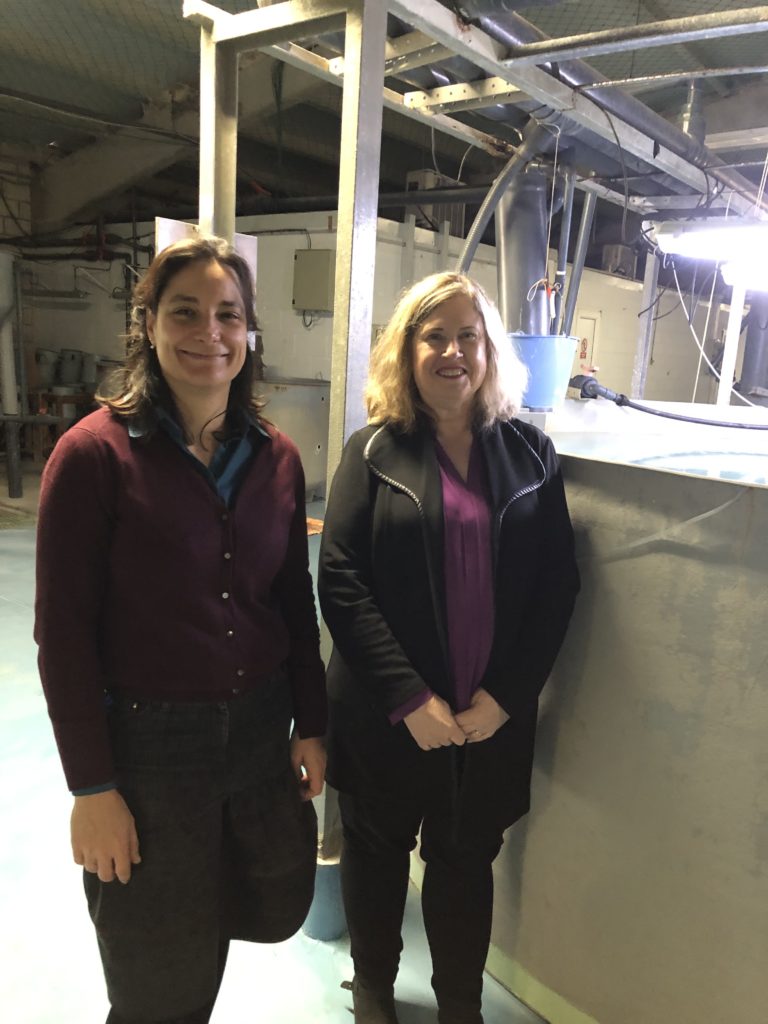
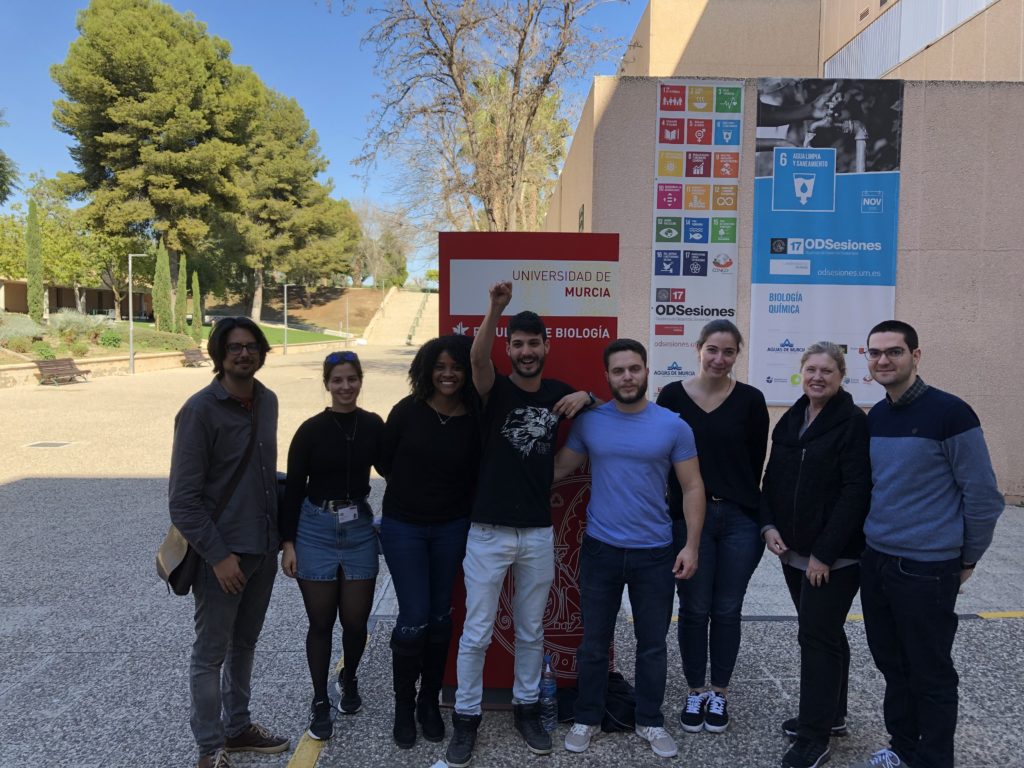
While in the Esteban lab at the Universidad de Murcia, I learned about the critical importance of fish farming to Spain and sustainability. Fish is a major part of the Spanish diet with an average consumption of 45 kg/person/year! I also found that Spain is number one in aquaculture in Europe, is a major exporter of fish, and that about 25% of fish in Spain are from fish farms. Fish diseases can threaten this industry and therefore the work in Dr. Esteban’s lab is very important. In the Esteban lab, I helped the lab collect fish mucous – the slimy outer layer that protects the fish- and tested it for new ‘antibiotics’. To do this, the entire Esteban lab would walk to the aquarium that held big tanks of sea bream, and collect the fish slime, blood for hormone tests, and other fluids and tissues for studying the effects of stress on the immune response of sea bream. Everyone sat at lab benches and worked together and took samples from fish for their individual research projects. I worked closely with Dr. Cristobal Espinosa and he taught me the methods for isolating antimicrobial peptides from fish slime and testing them against fish disease agents. These efforts paid off as our initial research proved that there were powerful antimicrobial substances in the fish mucous.
Unfortunately, because of the COVID-19 pandemic, I had to leave Spain early and was not able to complete purification of the antimicrobial peptides. However, before I left Spain, I had the opportunity to tour the Centro Oceanografico de Murcia in Mazarron guided by Dr. Elena Chaves-Pozo. This is a magnificent research institution where fish are cultured for both fish farming and marine research is performed to optimize fish culture. I learned that tuna cannot be touched in captivity because it disorients their ability to sense the aquarium walls and leads to deaths due to impact. I also learned that an entire ecosystem is required for tuna to survive with a system of algae and rotifers and intermediates required for fish to be available for the tuna to eat and survive. During my visit to Centro Oceanografico, it was the celebration of Women at Work so I feasted with the women at a nearby restaurant. Although I had to leave Spain early, and the project was not concluded, I still remain in contact with the Esteban lab and we have discussed collaborative efforts.
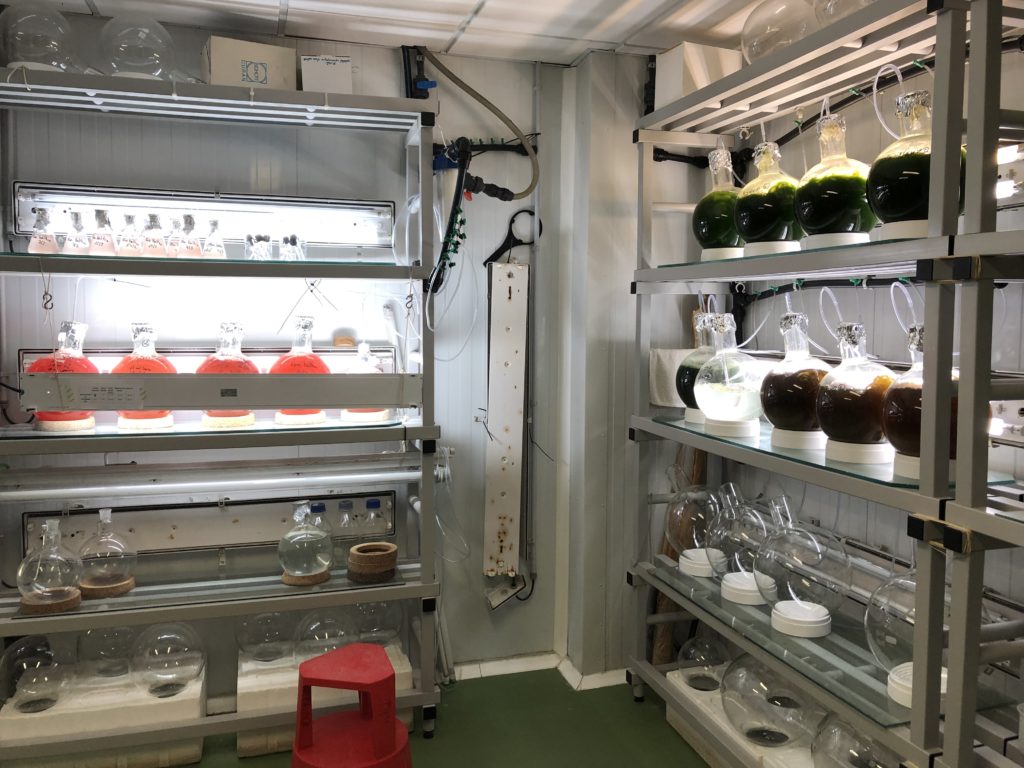
While in Spain, I had the opportunity to visit Valencia with fellow Fulbright Senior Scholars Nancy Sayre and Abby Kavner. This beautiful city is home to the Central Market, the Valencia Cathedral and the Science Museum and Oceanographic Park, and of course, the beach. We had an amazing time and met up with other Senior Scholar Fulbrighters to feast on Spanish cuisine
I strongly encourage you to apply to be a Fulbright Scholar at the Universidad de Murcia. It is a wonderful place and the enthusiasm, commitment, and work ethic of the researchers there is impressive. I truly enjoyed every minute that I was there and hope that Dr. Esteban and her lab members can visit my lab in the United States once the pandemic is over. As I was leaving Spain, I was able to take a photo out of the plane window of the farm fishing nets off the shore of Spain. I thought to myself that this was a fitting goodbye to Spain as a Fulbright Scholar. I can’t wait to visit again and see these giant circular fish farms in person! I highly encourage you to apply as a Fulbright Scholar to the Universidad de Murcia. If you need more information, please contact me at Claudia.Gentry-Weeks@Colostate.edu. A special thanks to the awesome Program Officers and Coordinators at Fulbright Espana, Katherine Matles, Clara Badimón, Ben Sherman, Leticia Ibanez, and Michelle Dallet for all of the assistance and work that you do. Thank you!
Claudia Gentry, Fulbright Scholar 2019 at Universidad de Murcia